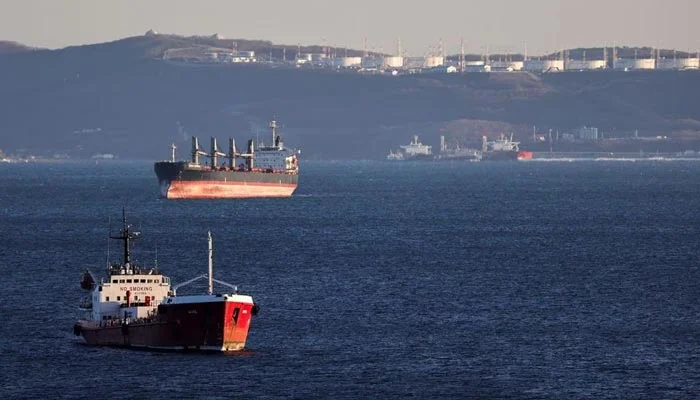- Delegation is here to finalise agreement, including payment mode.
- Once deal is done, Pakistan will place order for crude oil purchase.
- Russian ship will arrive in 26 days, most probably by mid-May.
ISLAMABAD: Pakistan moved a step closer to sealing its loan deal with Russia as the team has arrived in Karachi to fine-tune the deal on crude oil with counterparts in Pakistan State Oil (PSO), The News reported citing a senior official privy to the development.
“This time, we are expecting all the hurdles will be removed in importing crude oil from Russia,” the official said. However, the Energy Ministry is tight-lipped over the mode of payment and discount on crude oil prices.
It should be noted that last month the technical teams of the Operational Services Centre (PSC) — a Russian state-owned entity — held talks for two days on March 21-22 with the PSO team, which ended without progress on the constitution of Special Purpose Vehicle (SPV) responsible not only for importing the crude but also for the payments.
“The Russian delegation is here now to finalise the government-to-government agreement, including the mode of payment. Russia is currently asking for payment in China’s Yuan or Ruble, but Pakistan wants to pay in rupee,” the official told the publication.
According to inside sources, once the deal is done, Pakistan will place the order to Russia for crude oil purchase.
“The Russian ship will arrive in 26 days, most probably by mid-May. The current Brent price in the international market hovers at $85.16 per barrel whereas the Russian oil is available at $47-48 per barrel.”
At the same time, according to top officials, the State Bank of Pakistan (SBP) is asking some local banks, including the National Bank of Pakistan (NBP), to open letters of credit for importing Russian oil but they are hesitant to do so mainly because of the G7 countries’ regulations of following the price cap of $60 per barrel or below it and making the payments under Society for Worldwide Interbank Financial Telecommunications (SWIFT) arrangement.
The officials said that PSO had never imported crude oil as it only imports finished petroleum products from various sources and diesel from KPC (Kuwait Petroleum Company).
Refineries have been importing crude under long-term agreements from ADNOC and Saudi Aramco. But in the case of Russian crude, refineries will not be involved in the import, but it will be SPV with representatives from PSO and PSC.
“Pakistan may get Russian crude price with a discount close to $50 per barrel, $10 per barrel below the cap price imposed by G7 countries on Russian oil in the wake of the war on Ukraine,” relevant officials hinted.
However, one of the top guns in the coalition government said that the decision to import the Russian crude under the government-to-government agreement at a 30% discount may not provide the required relief as 26 days of transposition from the Russian port to Pakistan port will incur the per barrel shipping cost at $15 per barrel and $ 10 per barrel refining cost will erode the maximum discount.
On top of that, Pakistan refineries will only be able to extract just 10% MS out of Ural crude and 50% furnace oil.
The refineries are already facing the ullage of furnace oil. The only consumption of furnace oil in Pakistan depends upon running the RFO-based power plants.
The industrial sources suggest the government conduct a commercial analysis if the import of Russian oil will benefit Pakistan’s economy or not and, if yes, to what extent.

 Latest News10 hours ago
Latest News10 hours ago
 Latest News10 hours ago
Latest News10 hours ago
 Business10 hours ago
Business10 hours ago
 Entertainment10 hours ago
Entertainment10 hours ago
 Latest News10 hours ago
Latest News10 hours ago
 Latest News5 hours ago
Latest News5 hours ago
 Latest News5 hours ago
Latest News5 hours ago
 Latest News5 hours ago
Latest News5 hours ago























